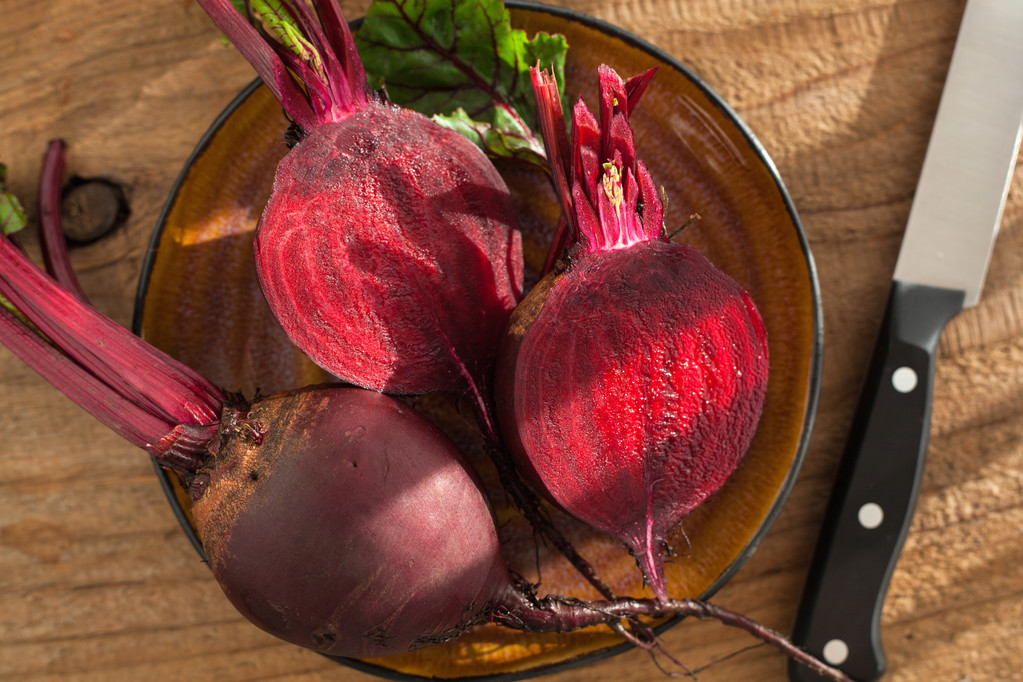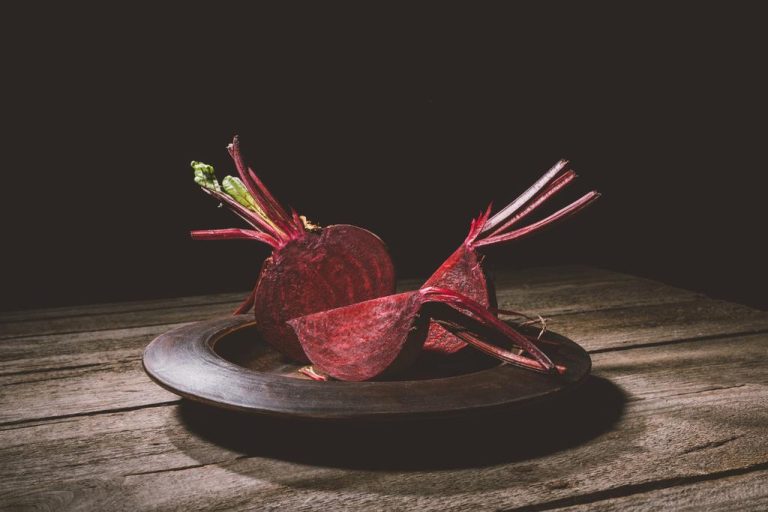Beetroot is high in healthy nutrients and vitamins and low in calories. Here you can find out what effects the beet can have on your health and how best to prepare it.
These nutrients make beets so healthy
Beetroot contains many vitamins and minerals and is quite low in calories. 100 grams of beetroot contain just 41 kilocalories.
Among other things, beetroot contains:
Folic acid, vitamin B1, vitamin B2, vitamin B6, vitamin C and beta-carotene, a precursor of vitamin A
the minerals potassium, calcium, sodium, magnesium, phosphate, iron and zinc
Vitamins support the body in maintaining all bodily functions. Since they are essential, your body cannot produce them on its own and you have to get enough of them through food.
The vitamins in beetroot support important bodily functions such as visual performance, bone formation, protein metabolism and the function of your immune system. Folic acid plays a key role in blood formation and cell growth, and vitamin C supports the immune system and many of the body’s metabolic processes.
Like vitamins, minerals are essential and especially important for muscles, teeth and bones. In combination with vitamins, they keep your body running. Deficiency symptoms can have serious health effects.
Beetroot is high in antioxidants and helps with high blood pressure
The pigment betanin, which gives the beetroot its characteristic color, is one of the flavonoids (secondary plant substances). Antioxidant properties are attributed to betanin. According to the German Society for Nutrition (DGE), these support the cardiovascular system and prevent heart disease. In addition, the plant substances in the body should intercept free radicals.
Folic acid and iron are also significantly involved in the formation of red blood cells, which is why beetroot also has a positive effect on the blood balance. Beetroot also contains nitrate and nitrogen compounds, which some studies have shown may help fight high blood pressure and diabetes. Nitrate is converted into nitrite in the body, which is said to have a relaxing effect on blood vessels. In addition, beetroot is said to boost nitrogen production in the body in diabetics, which means that blood sugar can be better controlled.
Health note: Too much nitrate can be harmful to infants. You should therefore not eat beetroot. Also, people prone to kidney stones are advised not to consume too much beetroot as it contains a lot of oxalic acid. Oxalic acid is said to increase the risk of kidney stone formation.

In this way, the nutrients are retained during the preparation of beetroot
In order to preserve as many ingredients as possible, the beetroot should not be cooked for too long. It is best to prepare the beets without water. You can also use them raw in salads or as a vegetable side dish. If you would like to prepare the tuber warm, it is a good idea to cook it in the oven with the skin on and peel it later.
If you do want to cook the beetroot, there are a few things to keep in mind:
Always cook the beets with the peel so that fewer ingredients are lost.
You should not cut off the leaves and roots, just twist them off.
In boiling water, the beets will take about 30-45 minutes to soften.
Salt should only be added shortly before the end of the cooking time, otherwise it will take away the colour.

